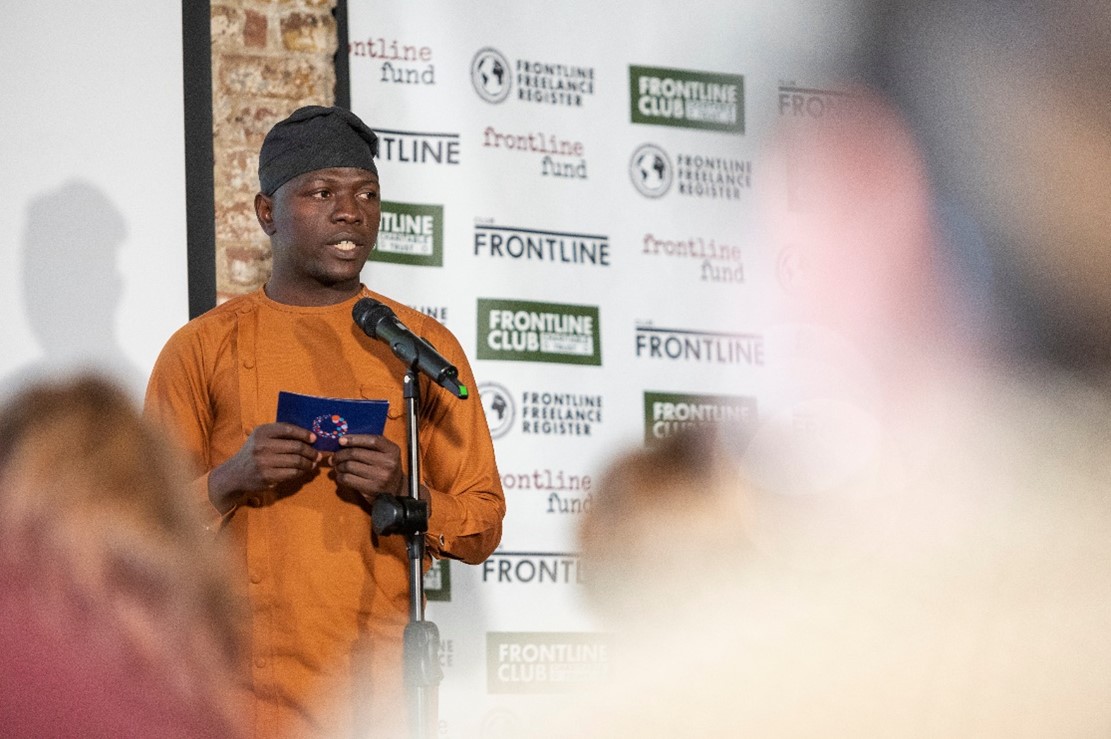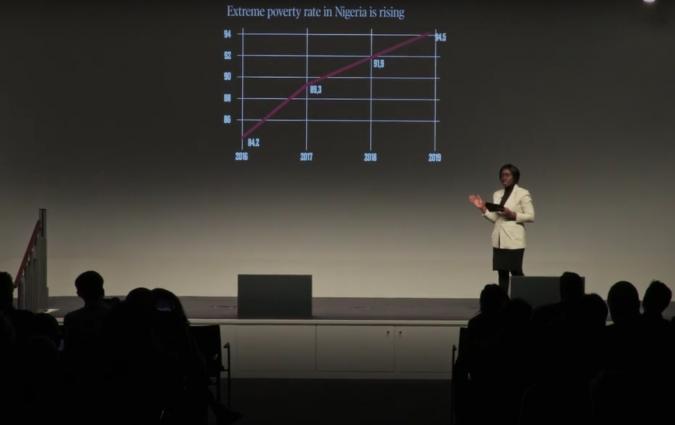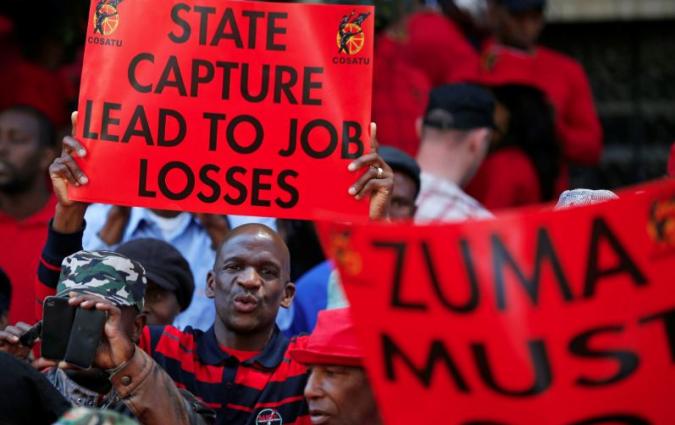In this piece
What journalists should know about the farmer-herder crisis in Nigeria

Samuel Thomas and his family were victims of the farmer-herder crisis in the early 2000s, when his family was forced to flee their home. Image: John Cairns
In this piece
The human face of the crisis | The role of state and non-state actors | The role of journalism in addressing the crisis | ConclusionConflict between settled farmers and nomadic herders is not a new phenomenon; it has existed for centuries, around the globe, primarily driven by competition for resources such as land and water. But in Nigeria, the farmer-herder crisis persists to this day – with increasingly devastating consequences.
Fuelled by a combination of environmental, economic, and political factors, the crisis has led to significant loss of life, displacement of communities, and widespread destruction. Now set to be further exacerbated by climate change, which has led to more frequent and severe droughts in the north and flooding in the south, it is crucial that journalists get to grips with the nuances of the conflict and our role in reporting it responsibly.
The Land Use Act of 1978, which vests all land in Nigeria in the hands of the government, has played a role in exacerbating the conflict. The act fails to adequately address the needs of either farmers or herders. Coupled with bureaucratic implementation hurdles and corruption, it has added fuel to fire.
The human face of the crisis
The most compelling part of this project has been hearing the personal stories of those affected. As the son of a farmer, I have my own story of being forced to flee to the city as a child when the conflict reached our village. My family never recovered from the loss of our home and income.
But, during my time at the Reuters Institute, I have heard the stories of other farmers, herders, union bosses and even security forces. Yohana Tafida, a farmer from the Lau local government area, lost six relatives in an attack and was forced to flee to Jalingo. Similarly, Haggai Rimamnongskip, a farmer from Ando Idi Community, speaks of the significant losses his family has endured due to the crisis.
Their stories underscore the devastating effects of displacement – increased food insecurity, and the loss of lives and property – experienced by so many in the region. They also highlight the need for better reporting that goes beyond mere incident reporting to explore the underlying causes and potential solutions.
The role of state and non-state actors
The security situation in affected areas remains tense, with both farmers and herders increasingly arming themselves with guns. Both parties are locked in a cycle of retaliatory violence, further exacerbating the crisis.
While some state governments have attempted to address the conflict through legislation, such as banning open grazing and promoting ranching, these measures have often met with resistance and have not been fully effective. The government’s failure to provide adequate solutions and the political exploitation of the crisis have further inflamed tensions.
Non-state actors, such as the Search For Common Ground (SFCG), have been working to restore peace through grassroots initiatives. Their efforts include establishing early warning systems, conducting community dialogues, and promoting sustainable peace through policy dialogues and media engagement. SFCG has recorded real successes with this approach, which state actors could duplicate and scale to end the crisis.
The role of journalism in addressing the crisis
Journalists play a crucial role in disseminating information and shaping public perception. However, covering the farmer-herder crisis poses significant challenges, including security risks, limited access to conflict zones, and political pressure.
When I polled 22 Nigerian journalists about whether they felt we were doing a good job reporting this story, more than half admitted we were not. Specifically, 54% of the journalists felt that our coverage was failing to address key issues, while 18% said it was biased and sensational. Only 28% thought it was comprehensive. This self-assessment is a wake-up call for all of us in the field.
Media researchers have reached similar conclusions. A 2020 study by Dr. Oliver Chuks Odiegwu-Enwerem and colleagues analysed 159 stories about the conflict from six Nigerian newspapers. Their analysis found that journalists often relied heavily on third-party sources "whose views are likely to be biased". The study identified six themes in conflict coverage: reports of offensive attacks, reports of reprisal attacks, public condemnation of attacks, conciliatory efforts, and investigative work. Alarmingly, the vast majority of coverage fell under the theme of public condemnation of attacks, with investigations accounting for just 2.5% of all coverage.
Another study by Sunday Ucha Aja et al., conducted in 2022, looked at farmer-herder coverage in three major national outlets – The Sun, The Guardian, and Punch – between March 2018 and January 2019. The findings were stark: the coverage was highly episodic, meaning it reported episodes of violence without reflecting the wider pattern of conflict. The stories were also predominantly negative, depicting those involved as either criminal aggressors or blameless victims. This approach failed to grasp the principles of peace journalism.
Peace journalism focuses on conflict resolution and promotes understanding between conflicting parties. It requires journalists to go beyond the sensational aspects of conflict and delve into its root causes, exploring potential solutions and giving voice to all stakeholders involved. Training journalists in these skills is crucial. By doing so, we can enhance the quality of our reporting and contribute to peacebuilding efforts.
We should also be pragmatic about the challenges journalists face in undertaking in-depth investigations on the farmer-herder crisis. Most notably, there are security risks and safety concerns when attempting to cover a violent conflict. Areas like Ussa, where violence can erupt at any moment, are incredibly dangerous for journalists. Secondly, many of these conflicts take place in regions with poor infrastructure, making them extremely difficult to reach. This is compounded by limited internet and phone coverage.
A third challenge is the difficulty in accessing accurate information and reliable sources – particularly when nomadic herders are on the move or when internally displaced persons (IDPs) are fleeing for their lives. The dynamic nature of these populations makes it hard to gather consistent and reliable data. Finally, some journalists also face political pressure or censorship from authorities, which can limit the scope and depth of their reporting.
Solutions to these problems may come in the form of community-based reporting, perhaps even in collaboration with citizen journalists. A third of the journalists I polled mentioned town hall meetings as an effective way to gather firsthand information and build trust with sources. Such grassroots approaches can yield richer, more nuanced stories and ensure that the voices of those directly affected by the conflict are heard.
While the media alone cannot solve the farmer-herder conflict, it can play a vital role in promoting peace by:
- Providing a platform for diverse voices: Including perspectives from farmers, herders, community leaders, and peacebuilding organisations can promote understanding.
- Investigating the root causes: Reporting beyond episodic stories of violence and delving into long-term structural issues like climate change, land rights, and resource scarcity to spark necessary conversations.
- Promoting peacebuilding efforts: Highlighting success stories and initiatives aimed at building trust and cooperation can inspire hope and encourage others to get involved.
Conclusion
In conclusion, as journalists, we have a responsibility to improve our reporting on the farmer-herder crisis. By adopting peace journalism principles, collaborating with NGOs, and engaging with the communities we report on, we can contribute to a more comprehensive and balanced understanding of this complex issue.
The farmer-herder crisis in Nigeria is a multifaceted issue that requires a comprehensive and coordinated response. I hope this project will provide my colleagues in Nigeria and abroad with valuable insights into the causes and consequences of the conflict, and promote better coverage.
To delve deeper into the nuances of the farmer-herder crisis and explore the detailed analysis and recommendations, download the full PDF below.
In every email we send you'll find original reporting, evidence-based insights, online seminars and readings curated from 100s of sources - all in 5 minutes.
- Twice a week
- More than 20,000 people receive it
- Unsubscribe any time



